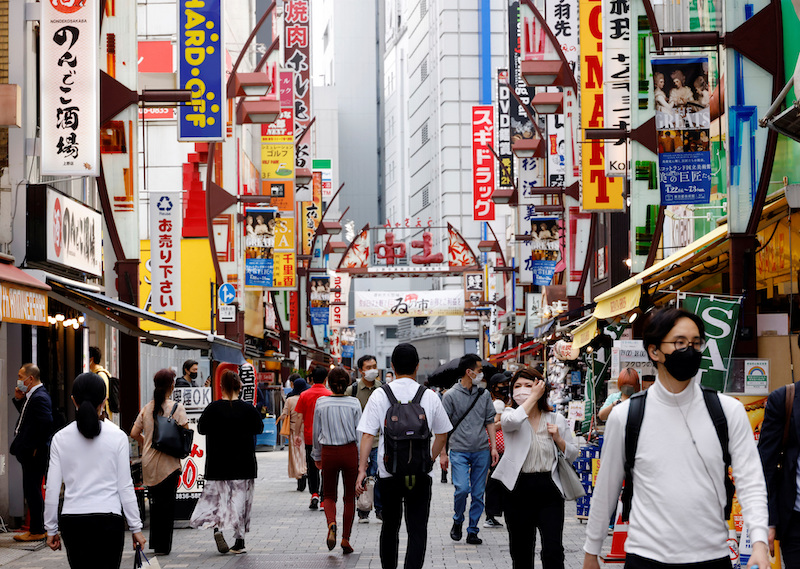Japan’s core consumer inflation rate rose to a new eight-year high of 3.0% in September, in a test to the central bank’s dovish policy.
The inflation data on Friday exposes the challenge the Bank of Japan faces as it tries to bolster a weak economy via low interest rates, which have caused the yen’s plunge to 32-year lows and hit importers with higher costs.
The increase in the nationwide core consumer price index (CPI), which excludes volatile fresh food but includes fuel costs, matched a median market forecast and followed a 2.8% rise in August.
It stayed above the BOJ’s 2.0% target for the sixth month, and was the fastest pace of gain since September 2014, data showed on Friday.
‘Core-Core’ Index
The broadening price pressures in Japan and the yen’s tumble below the key psychological barrier of 150 to the dollar will likely keep alive market speculation of a tweak to the Bank of Japan’s dovish stance over coming months.
“The current price rises are driven mostly by rising import costs rather than strong demand. Governor Kuroda may maintain policy for the rest of his term until April, though the key is whether the government will tolerate that,” Takeshi Minami, chief economist at Norinchukin Research Institute, said.
The data heightens the chance the BOJ will revise up its consumer inflation forecasts in new quarterly forecasts due at next week’s policy meeting, analysts say.
The yen’s decline has been particularly painful for Japan due to its heavy reliance on imports for fuel and most raw material, forcing companies to hike prices for a wide range of goods including fried chicken, chocolates to bread.
The so-called ‘core-core’ index, which strips away both fresh food and energy costs, rose 1.8% in September from a year earlier, accelerating from a 1.6% gain in August and marking the fastest annual pace since March 2015.
The rise in the core-core index, which the BOJ closely watches as a key gauge of the underlying strength of inflation, toward its 2% target casts doubt on the central bank’s view that recent price rises will prove temporary.
Modest by Global Standards
With Japan’s inflation still modest compared with price rises seen in other major economies, the BOJ has pledged to keep interest rates super-low, remaining an outlier in a global wave of monetary policy tightening.
BOJ Governor Haruhiko Kuroda has stressed the need to focus on supporting the economy until wage growth picks up enough to compensate for the rising cost of living.
While Japan’s labour union lobby has pledged to demand wage hikes of around 5% in next year’s wage negotiations, analysts doubt pay will rise so much with fears of global recession and soft domestic demand clouding the outlook for many companies.
The September CPI data showed that while goods prices rose 5.6% year-on-year, services prices were just up 0.2% in a sign of how Japan’s inflation is still driven mostly by cost-push factors.
“Consumer inflation is likely to slow in 2023. If so, any tweak to the BOJ’s easy monetary policy will be minor even under the change to the bank’s leadership next year,” said Yasunari Ueno, chief market economist at Mizuho Securities.
Governor Kuroda will see his second, five-year term expire in April next year. The term of his two deputy governors will also end in March.
- Reuters with additional editing by Jim Pollard
ALSO SEE:
Yen Sinks Below 150 to Dollar, Market Watch for Intervention
Japan Plans Major Arms Buildup as China Eyes Taiwan Takeover
Australia Bids to Boost Pacific Defence Links, Counter China
US, Taiwan in Talks Over Joint Weapons Production: Nikkei
























